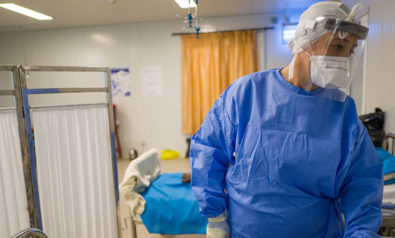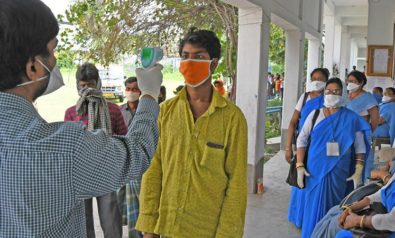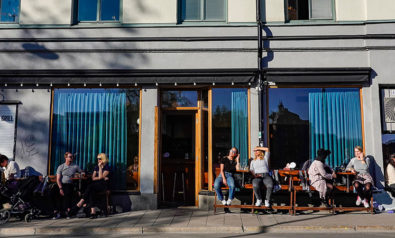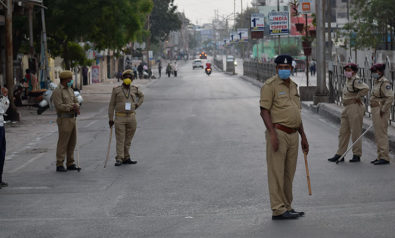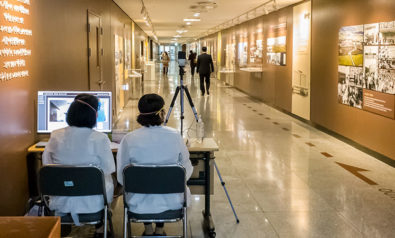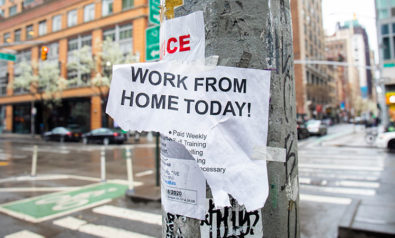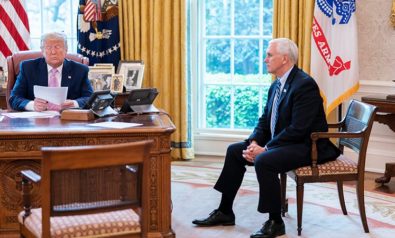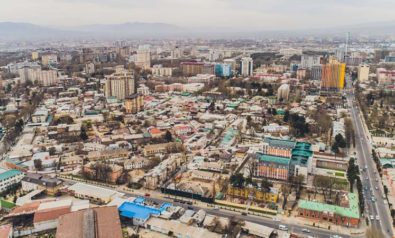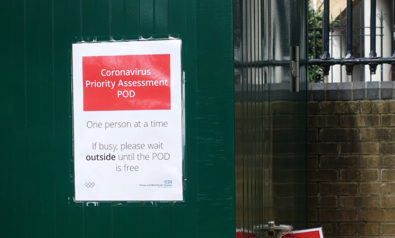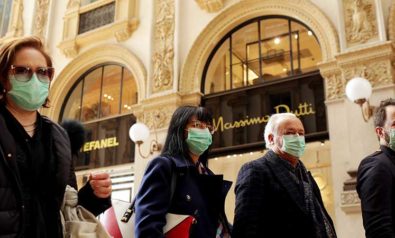Switzerland poses a fascinating puzzle to anyone interested in contemporary politics. It has a confederate system, which accords a great deal of autonomy and independence to its constituent units, the cantons. Its consociational system is based on consensual decisions, and its extreme system of direct democracy allows Swiss citizens to vote in a slew of referenda and popular initiatives on the federal, cantonal and local level. Thus, Switzerland is every populist’s dream come true. Not for nothing, Marine Le Pen, the leader of the National Rally, has consistently held up the Swiss system as an ideal type held up for France to follow. Ironically enough, there are few countries in Western Europe — Italy being one of them — where the radical populist right has been more successful in recent years than in Switzerland.
As throughout Western Europe, the main issue has been migration. Switzerland is among the countries with the highest ratio of foreigners in Western Europe. In some cities, such as Basel and Geneva, foreigners make up more than 30% to 40% of the resident population. Cantons bordering neighboring France, Germany and Italy rely to a large extent on transborder commuters, who have provoked considerable resentment among the “native-born” Swiss. In the Italian-speaking canton of Ticino, for instance, latent resentment against Italian commuters led many a resident voter to support the local radical populist-right Ticino League, propelling it into a leading position in the canton. In Geneva, a similar Geneva Citizens Movement, directed against French frontaliers, has made considerable waves, only to decompose after internal leadership squabbles.
Swiss Champions
The most significant party on the radical populist right, however, has been the Swiss People’s Party (German acronym, SVP; French acronym, UDC). The SVP originated as a farmers’ party, representing the interests of Switzerland’s rural population. In the 1990s, under the leadership of the Zurich wing of the party, the SVP morphed into a radical right-wing populist party. Its success was largely owned to the political genius of Christoph Blocher, one of Switzerland’s most successful entrepreneurs.
Under Blocher, the SVP repositioned itself as the champion of Swiss national interests — against migration, against the “Islamization” of the country, against Switzerland’s application for membership in the European Union. The SVP was against all, and being against served the party well — until the pandemic hit the country.
COVID-19 Is a Wake-Up Call on the Shortcomings of Globalization
There are few countries in Western Europe that were hit harder than Switzerland by the pandemic. In early March, Switzerland ranked right after Italy as the country with the most pro-capita cases. In response, the federal government introduced emergency measures, closed the borders and ordered a lockdown. Like other European countries, Switzerland was completely unprepared for the pandemic. Weeks before the lockdown, pharmacies ran out of face masks and hand sanitizer, supermarkets of household disinfectants. Dependent on foreign suppliers for basic protective gear, authorities and private individuals scrambled to find new sources, particularly in China.
A second problem was mental unpreparedness. At the beginning of March, Blocher’s daughter, a member of the Swiss parliament for the SVP, entered the chamber wearing a protective mask. A few minutes later the president of the national assembly ordered her to leave so not “to disturb” the debates. Commenting on the incident, a colleague suggested that wearing a face mask in parliament was likely to create the impression that “the situation is worse than it really is.” Another colleague noted that “in the current situation” the wearing of masks was “exaggerated anyway.” Others shook their heads in consternation or laughed about the incident. Two weeks later, nobody was laughing anymore.
Peculiar Position
The SVP is arguably Western Europe’s most successful radical right-wing populist party. In the Swiss system, however, it is in a peculiar position. As the largest of Switzerland’s four major parties, it is entitled to two portfolios in the seven-member federal government. As a result, it is what in German is called a staatstragende Partei — a party that is aware of and accepts its responsibility for the state. At the same time, under Blocher, the SVP promoted itself as the voice of opposition to the political establishment or, as Blocher would put it, the “classe politique” charged with constantly seeking to dupe ordinary citizens.
When Christoph Blocher was a member of the federal government between 2004 and 2007, he tried to do a balancing act, namely to be both the government and the opposition. Behind the strategy was the attempt to undermine Switzerland’s consociational, consensus-based system of government and replace it with a competitive, British-type system. The strategy abysmally failed, and Blocher gradually withdrew from official politics, without, however, withdrawing from public life. Quite to the contrary, the COVID-19 crisis has shown to what degree Blocher has maintained his considerable influence on the right of the Swiss political spectrum.
The SVP was the first party to recognize that COVID-19 represented a serious threat to the country. As early as mid-March, the party called for the immediate closing of Switzerland’s borders in order to prevent what it referred to as “health tourism.” The SVP also asked the federal government to immediately adopt stringent measures to slow the progress of infections and thus protect the Swiss health-care system from collapsing. Some SVP politicians disagreed, charging that the “antiliberal panic package” would cause more damage than good. But overall, there was broad internal support for the party’s position. Blocher himself made clear that in this precarious situation, “we have to stand behind the Federal Council.”
At the same time, Blocher sought to exploit COVID-19 to advance the SVP’s political agenda. In an essay for Die Weltwoche, a weekly magazine closely aligned with the SVP, he laid out his views on the implications of the crisis for his country. COVID-19, he charged, had once again drastically demonstrated that it was paramount to resist the siren calls of globalization and maintain and defend national sovereignty and independence, particularly with respect to the EU. The only way to prevent infections was to set boundaries, to distance oneself from others. Openness was positive as long as it profited the country economically; negative if it entailed giving up control. In Blocher’s view, this is particularly important when it comes to national borders. Switzerland would have been in a better position had it closed its borders with Italy. Safeguarding the country’s borders was particularly important with regard to asylum seekers, many of whom, he suggested, only pretended to be refugees. Yet the influx “from developing countries entails the introduction of infectious diseases which we thought to have defeated a long time ago.”
What Blocher conveniently forgot to mention were the thousands of Chinese tourists who visit Switzerland every year, much to the delight of hoteliers, chocolatiers and upscale watch stores in Geneva, Zurich, Lucerne and Basel. As Emperor Vespasian once quipped, pecunia non olet — money doesn’t stink, and neither does it carry potentially lethal viruses.
Change of Direction
The SVP’s support of the national government, which, one might recall, includes two SVP ministers, did not last very long. True to its strategy to be both government and opposition, the SVP quickly changed direction. Four weeks after the government had ordered a lockdown, the party demanded that the decision should be reversed “as fast as possible.” Blocher took it upon himself to explain the rationale behind the party’s demand: economic necessity. While affirming the importance of protecting the health of the population, he cautioned that those “who only protect health but destroy the economy destroy the basis of life.” Or, as the SVP flyer “Stop lockdown now!” contended, without its economy, Switzerland “perishes.”
At the same time, the SVP charged the federal government with negligence, with having reacted too late. Targeting the federal minister (a socialist) responsible for health, Blocher charged that there was no strategy behind his actions. Instead of showing leadership, he had misled the people, particularly with respect to protective masks: The only reason the federal government dissuaded the people from wearing masks was “that there were none.”
Remarkably enough, the SVP’s campaign proved rather ineffective. Populists thrive during periods of widespread popular disaffection with the political establishment over burning issues, such as migration. The Swiss government’s initial response to the pandemic certainly gave cause for popular frustration, given its lack of preparedness. Yet surveys show that a large majority of the Swiss population has been quite satisfied with the way Swiss authorities handled the crisis. In late March, more than 60% of respondents said they trusted the government. Six weeks later, the public’s confidence in the government was at the same level.
Only SVP supporters had become more skeptical. They appeared to be particularly irritated by the fact that the crisis had allowed the national government to assume a great deal of power (“concentration of power”) to the detriment of the cantons, the parliament and the voters. In addition, in early May, the government started to ease restrictions, gradually allowing life to regain a modicum of normalcy. As a result, the SVP’s demands lost their relevance.
In response, the SVP once again readjusted its programmatic focus, honing in on the question what lessons the country should draw from the pandemic. For the SVP, the lessons were self-evident. The pandemic had clearly shown the dangers and pitfalls of the blind belief in the benefits of globalization. If in the initial phase of the pandemic, the country had struggled to provide protective gear, it was because it had outsourced production to Asia and elsewhere. In the process, Switzerland had allowed itself to become critically dependent on outside suppliers. The case of German export restrictions on face masks — the delivery of which had been stopped at the German border — had been a vivid demonstration of Switzerland’s vulnerability with respect to vital supplies.
Less Globalization
For the SVP, the solution was obvious: less globalization, more self-reliance in the name of “Switzerland First” — a position, by the way, widely shared among all major Swiss parties and a large majority of the Swiss population. In a representative poll in mid-May, 80% of respondents agreed that globalization should be slowed down, and more than 90% thought that Switzerland should assure the supply of “medical products” from domestic sources.
In a speech at an extraordinary meeting of the Swiss parliament, Finance Minister Ueli Maurer, from the SVP, set the tone. He exhorted his audience to act as role models and spend their next vacation in their own country and take the crisis as “a chance” to enjoy the country’s natural beauty, its “fine food, its wine, its beer.” This was one of those very rare occasions when a major SVP politician received applause from across the whole political spectrum.
The COVID-19 pandemic also breathed new life into a second concern dear to the SVP and its constituency — migration. A few months ago, the party had launched a popular initiative demanding to substantially reduce the number of new migrants from the EU, especially from Eastern Europe. Among other things, the SVP argued that a “measured migration” would not only help prevent the Swiss social systems from being “plundered” but also make the country “safer for women” and assure that the Swiss maintain their identity.
Before the onset of the pandemic, most observers expected the initiative to fail. COVID-19 created a fundamentally new situation, particularly given the high incidents of infections in Geneva and the cantons of Vaud and Ticino, bordering France and Italy. By now, the result of the initiative, rescheduled for September, appears once again wide open.
The strict border regime introduced in the wake of the pandemic gave the SPV the opportunity to call for maintaining the systematic border controls, which, or so the party maintained, had significantly reduced the influx of illegal migrants. These measures, the party charged, would allow Switzerland to regain control of immigration and assure that the Swiss did not become foreigners in their own country.
Unfortunately, Switzerland does not conduct regular election polls. It is, therefore, impossible to say whether or not COVID-19 has benefited the SVP. The crisis has lent new urgency to some of the core issues promoted by the radical populist right, such as the defense of national sovereignty, strict migration control and the promotion of “national preference,” particularly with regard to social benefits. With the opening of Switzerland’s borders expected for mid-June, these issues are likely to dominate part of the public debate, providing the SVP with new ammunition for its nativist campaigns.
*[The Centre for Analysis of the Radical Right is a partner institution of Fair Observer.]
The views expressed in this article are the author’s own and do not necessarily reflect Fair Observer’s editorial policy.
Support Fair Observer
We rely on your support for our independence, diversity and quality.
For more than 10 years, Fair Observer has been free, fair and independent. No billionaire owns us, no advertisers control us. We are a reader-supported nonprofit. Unlike many other publications, we keep our content free for readers regardless of where they live or whether they can afford to pay. We have no paywalls and no ads.
In the post-truth era of fake news, echo chambers and filter bubbles, we publish a plurality of perspectives from around the world. Anyone can publish with us, but everyone goes through a rigorous editorial process. So, you get fact-checked, well-reasoned content instead of noise.
We publish 2,500+ voices from 90+ countries. We also conduct education and training programs
on subjects ranging from digital media and journalism to writing and critical thinking. This
doesn’t come cheap. Servers, editors, trainers and web developers cost
money.
Please consider supporting us on a regular basis as a recurring donor or a
sustaining member.
Will you support FO’s journalism?
We rely on your support for our independence, diversity and quality.



